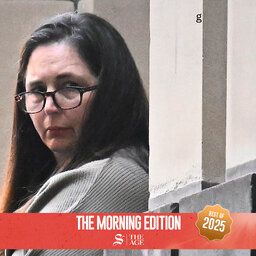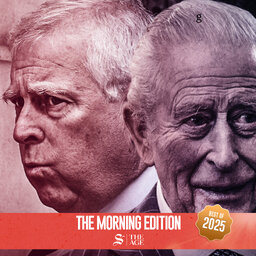The occupier and the occupied: a tale of an ambassador and an envoy
They’re on opposite sides of one of the world’s most violent political conflicts, representing groups who often express extreme animosity towards each other. One refers to them as the occupied and the occupier.
But what do the Israeli and Palestinian representatives in Australia make of each other? Especially now, when relations between Israel and Australia are if not at an all-time low, then pretty close to it?
Today, foreign affairs and national security correspondent Matthew Knott, on why both men - famously reluctant interviewees - granted him an interview at the same time. And what, 15 months into the war in Gaza, they wish Australians knew.
 The Morning Edition
The Morning Edition



